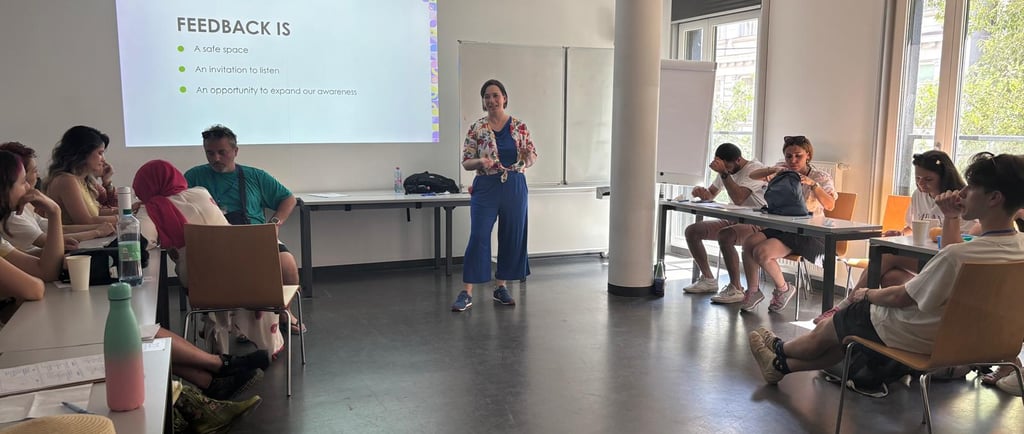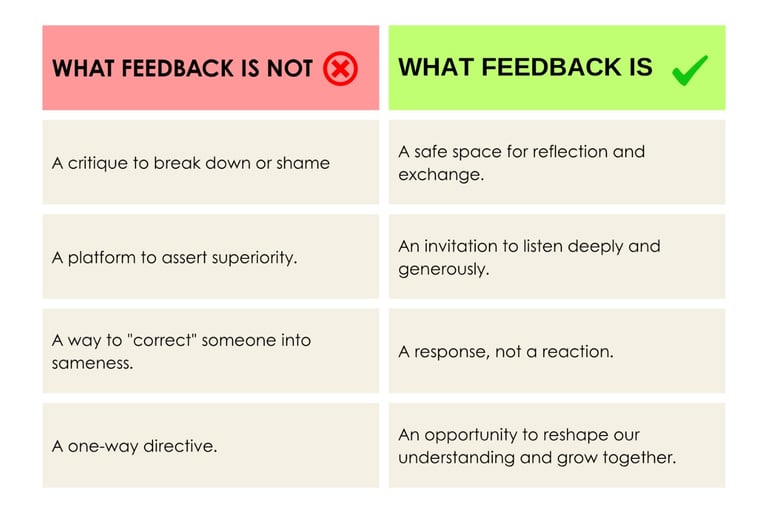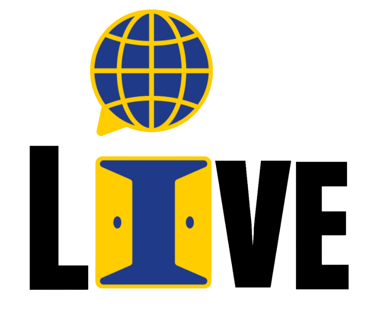Feed and Feedback - Guidelines for Conscious and Inclusive Feedback in Multicultural Spaces
In multicultural and collaborative environments, feedback should be seen as a bridge that fosters mutual growth and understanding. Meaningful feedback goes beyond correction or control; it is rooted in intentionality, inclusivity, and empathy. By clearly defining what feedback is (and what is not), we can move beyond hierarchical dynamics and instead cultivate authentic connection, deeper understanding, and transformative learning for everyone involved.
Natalia Quesada Vargas, MA. www.viviresfluir.com
7/16/20252 min read


In any collaborative or learning environment, feedback is both an art and a responsibility. It is not just something we give: it’s something we build together as a living process, a mirror, a bridge. A huge opportunity for mutual transformation.
Too often, feedback is misunderstood as a form of critique, correction, or control. But true feedback should be a conscious, inclusive, and empathic exchange.
It’s not about pointing out flaws or one person “fixing” another, and certainly not about reinforcing hierarchy or assuming authority. Let’s take a quick look at why it is important to define what feedback is and what is not:
What are we bringing to the table?
Languages are more than vocabulary. They are full of rhythm, emotion, and identity. When we listen across languages, we’re not just hearing; we’re receiving. Every accent, pause, or phrasing is not a barrier, these are the ingredients that create a unique “melting pot”.
As facilitators, we must be attuned and willing to digest this diversity. An easy way to remember four keys to giving feedback in a conscious way, is doing it with C.A.R.E:
C- Curiosity: Approach every person, language, and moments with a desire to understand, not to judge. Ask before assuming and be open to being surprised.
A- Awareness: Be mindful of your own cultural lens, biases, tone, and body language. Pay attention to the context (verbal and nonverbal).
R- Respect: Honor every voice, every accent, every perspective.
E- Empathy: Listen actively, beyond words. Give feedback in a way that acknowledges emotions, intentions, and the courage it takes to share vulnerability.
Now, I invite you to ask yourself before starting any feedback session:
Am I entering this space with humbleness?
Is my feedback grounded in care or control?
Am I feeding the moment with curiosity, respect and empathy?
Am I aware of my energy in this moment?
Our energy is the soil in which feedback grows. If we bring urgency, ego, or judgment, that’s what we feed into the room. But if we bring empathy, patience, and openness to be changed ourselves, then our feedback becomes a form of nourishment.
So, the next time you offer feedback, pause and reflect:
Am I creating safety, or tension?
Am I building trust, or assuming authority?
Am I co-creating meaning, or trying to control the outcome?
Feedback is not about criticism, it is about co-creation.
One of the core values of iLanguage is to promote that every voice matters, every language has value, and every individual brings something essential and unique to the table.
Let’s honor that together.
Written by Natalia Quesada Vargas, MA.


Diversity
Empowering multilingual communication in diverse contexts.
Inclusion
Education
© 2025. All rights reserved.
